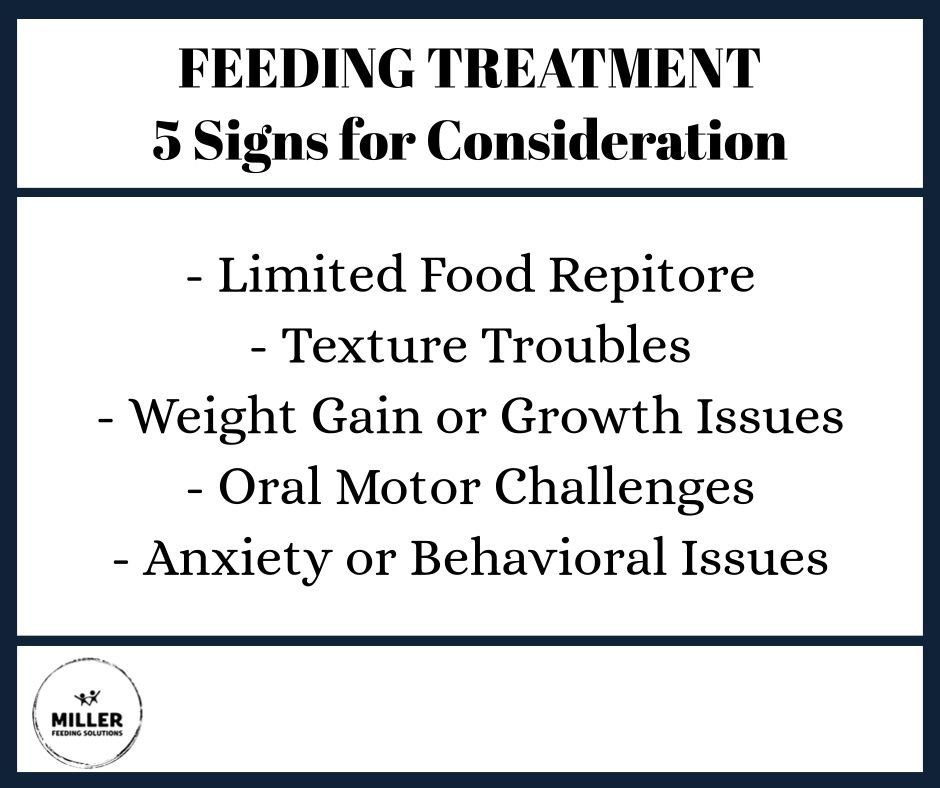How Do I Know When to Seek Support For My Picky Eater?
5 Signs For Consideration
We understand that mealtimes can be stressful and worrisome when your child faces difficulties with eating. If you've ever noticed your little one struggling during meals, you might be wondering whether it's just typical childhood picky eating or if it's time to seek the guidance of a feeding therapist. Let's explore five important considerations for feeding treatment to help you make an informed decision.
Limited Food Repertoire:
Ever feel like your child only eats the same few foods over and over again? We're not talking about typical picky eating, but a more extreme form where they steadfastly refuse to try new foods. If their food repertoire is severely limited, it may be time to consult a feeding therapist. These experts can assess your child's sensory issues, oral motor skills, and behavioral patterns, helping them expand their food choices gradually.
Texture Troubles:
Does your child have a hard time with certain textures? Maybe they gag, choke, or seem uncomfortable when faced with purees, solids, or lumpy foods. Texture aversions can be a sign of feeding difficulties. A feeding therapist can step in, offering gradual exposure to different textures, implementing sensory-based techniques, and providing strategies to help your child handle a variety of textures more comfortably.
Weight Gain or Growth Issues:
Have you noticed that your child's weight gain or growth isn't keeping up with their peers? Consistently inadequate progress could point to underlying feeding difficulties. If they're not meeting growth milestones or falling off their growth curve, seeking professional help is crucial. A feeding therapist will evaluate the nutritional aspects of feeding, identify any oral motor challenges, and collaborate with healthcare providers to create a personalized plan to support your child's growth and development.
Oral Motor Challenges:
Chewing, swallowing, and coordinating the movement of the tongue, lips, and jaw during meals are skills that some children struggle with. If you've noticed excessive drooling, frequent choking or coughing, messy eating habits, or lengthy mealtimes, your child might benefit from feeding treatment. A feeding therapist can provide exercises, techniques, and strategies to improve oral motor skills, making eating safer and more efficient.
Anxiety or Behavioral Issues:
Feeding difficulties can take a toll on your child's emotional well-being, leading to anxiety or behavioral issues during mealtimes. If your little one becomes extremely distressed, throws tantrums, or tries to avoid meals altogether, it's time to address these concerns. A feeding therapist can help identify the underlying causes, develop strategies to create a positive and relaxed mealtime environment, and guide you through managing anxiety or behavioral challenges.
We hope this information has provided clarity on the signs that suggest your child could benefit from additional feeding support. Remember, seeking professional help is not a sign of failure but a proactive step towards ensuring your child's long-term health and well-being. Early intervention can address feeding difficulties, broaden their food choices, and provide the support they need to grow and develop properly. If you've noticed any of these signs in your child, we encourage you to get in touch with us today. Our therapists are here to offer specialized guidance tailored to your child's unique needs. Together, let's create mealtimes that are positive and nourishing experiences for your little one.













